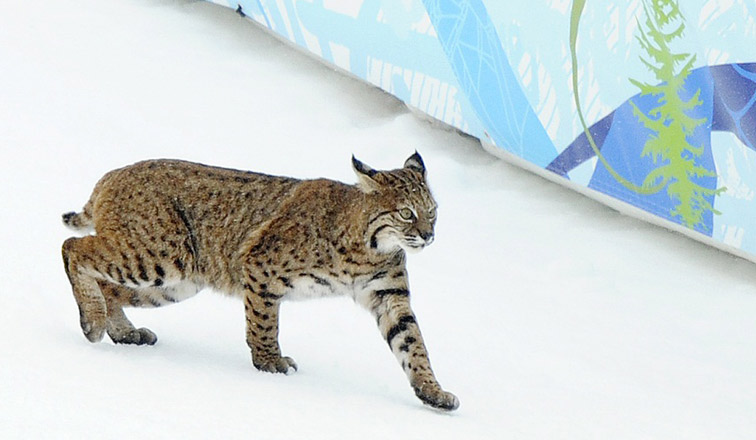Should the lynx be reintroduced into Britain's forests?
Conservationists say the cats will help control deer populations but farmers are worried about their sheep

A free daily email with the biggest news stories of the day – and the best features from TheWeek.com
You are now subscribed
Your newsletter sign-up was successful
Lynx could soon be reintroduced into the wild, more than a thousand years after they became extinct in Britain.
If a public consultation is successful, the scheme by the Lynx UK Trust could see dozens of the wild cats released at sites in Norfolk, Cumbria, Aberdeenshire and Northumberland. They would be fitted with radio tracking devices and released into areas rich in deer and tree cover.
"The lynx is one of the most enigmatic, beautiful cats on the planet," the trust's Paul O'Donoghue told the Daily Telegraph last month. "The British countryside is dying, and lynx will bring it back to life."
The Week
Escape your echo chamber. Get the facts behind the news, plus analysis from multiple perspectives.

Sign up for The Week's Free Newsletters
From our morning news briefing to a weekly Good News Newsletter, get the best of The Week delivered directly to your inbox.
From our morning news briefing to a weekly Good News Newsletter, get the best of The Week delivered directly to your inbox.
Conservationists say the reintroduction of the predators will boost biodiversity and help control the deer population, limiting the damage they cause to forests.
However, the National Farmers Union (NFU) has raised a number of concerns. It is worried that the cats will target sheep and argue that the money could be better spent.
"With limited funding available, budgets are better focused on retaining and developing existing biodiversity," Andrew Clarke, the director of policy for the NFU told the BBC.
But the Lynx Trust argues that the animal's solitary and secretive nature means that they present no threat to humans and it is "exceptionally rare" for them to hunt livestock.
A free daily email with the biggest news stories of the day – and the best features from TheWeek.com
Conservationists point to countries like Switzerland, where lynx have been successfully reintroduced into the wild with little or no impact on farming. A compensation scheme would be put in place to reimburse farmers in the event of any deaths.
"Their presence will return a vital natural function to our ecology, helping control numbers of deer and a variety of agricultural pest species whilst protecting forestry from deer damage caused by overpopulation," says the trust.
The reintroduction will be done in a "very controlled, scientific way", ensuring that everyone's concerns are taken into account, said O'Donoghue.
Once the consultation is completed, the trust will lodge a formal application with Natural England and Scottish Natural Heritage.
-
 Quiz of The Week: 14 – 20 February
Quiz of The Week: 14 – 20 FebruaryQuiz Have you been paying attention to The Week’s news?
-
 The Week Unwrapped: Do the Freemasons have too much sway in the police force?
The Week Unwrapped: Do the Freemasons have too much sway in the police force?Podcast Plus, what does the growing popularity of prediction markets mean for the future? And why are UK film and TV workers struggling?
-
 Properties of the week: pretty thatched cottages
Properties of the week: pretty thatched cottagesThe Week Recommends Featuring homes in West Sussex, Dorset and Suffolk